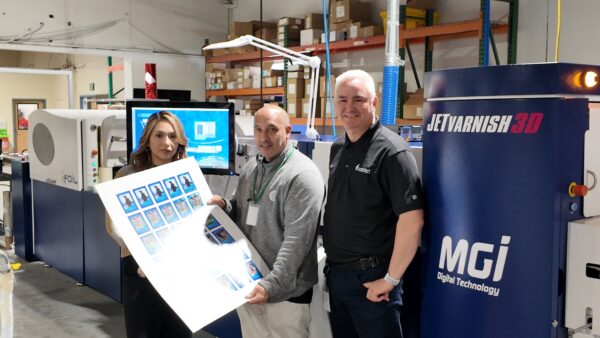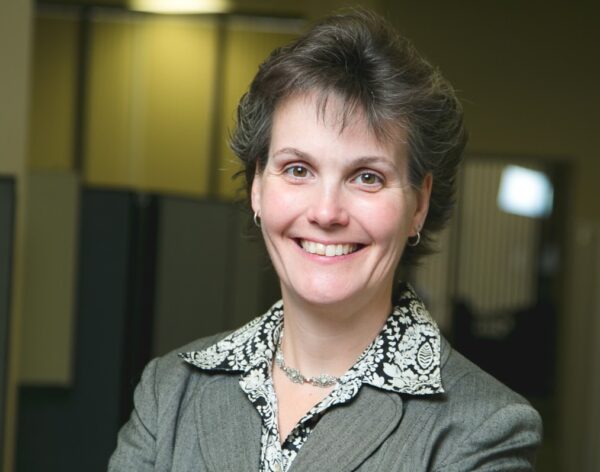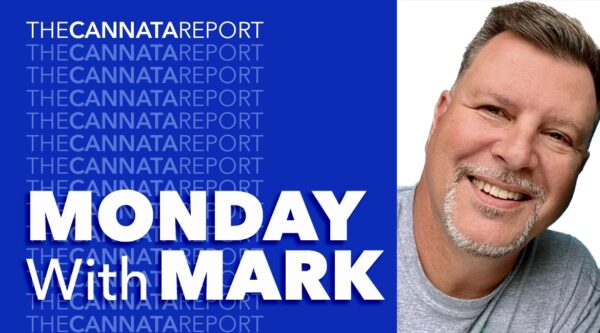Our dealer tour of Cincinnati concludes with a visit with one of the fastest growing dealerships in the Midwest.
The final stop on our dealer tour of Cincinnati was with one of the largest dealerships in the city, Prosource. Mainly due to an aggressive acquisition strategy, as well as eight offices across Ohio, Kentucky, Indiana, and West Virginia, Prosource is one of the fastest-growing office technology dealerships in the Midwest.
Prosource was founded as Cincinnati Copiers in 1985 by Dave Russert and Ted Cook. They started using the name Pro-Copy in 1990 with their expansion to Dayton and Columbus, Ohio. In 1995, they changed their name to Pro-Copy Technologies to indicate the company was now selling more than just copiers. In 2005, Pro-Copy Technologies became Prosource to better convey its offering of a wide range of technologies, services, and solutions, including managed IT and ECM.
During our visit, we met with Ben Russert, chairman and son of founder Dave Russert, along with Brad Cates, president and CEO, for dinner and again the following morning. Russert joined Prosource in 1987 and spent 12 years in sales. In 1999, he took over as president and became sole owner in 2003. He has also served as president of the Copier Dealers Association (CDA) and is recognized as one of Konica Minolta’s top dealers.
Cates joined Prosource in 2012 after serving as president of Standard Register Healthcare. He has more than 20 years of sales, marketing, new business development, operations, strategic account management, and general management experience.
Prosource represents Konica Minolta and Lexmark in all locations, while select locations also carry Toshiba products. In 2017, the company reported revenues of $52 million, and Cates indicated he expects the company to grow those revenues to $57 million in 2018.
Looking at the core MFP and MPS business segments, Prosource’s goal is to generate 50% of its revenue from software and 50% from services and hardware within the next five years. Based on all that we had the opportunity to observe during our visit, the company seems well positioned to reach those goals.
Cates also praises Prosource’s MFP and imaging suppliers.
“They’ve been very helpful in helping us go after major accounts and new business,” he said.
When asked what else manufacturers can do to help Prosource grow its business, Cates responded, “Bring the full breadth of their talent, resources, pricing, and capability to help us target and secure net new business, promote our brand, innovate for our customers, and strengthen our market-leading position.”
He’d also like to see them lower their pricing.
Part of Prosource’s strength has come from its acquisitions. The company has completed four deals over the past five years. In 2013, the acquisition of Infitech, a managed network services company, added IT products and services to Prosource’s office technology portfolio. In 2014, Prosource expanded its geographic footprint into Kentucky by opening offices in Louisville and Lexington. The following year, Pro- source acquired West Chester, Ohio-based Alternative Computer Technology (ACT), an IT security company.
Another acquisition, Aarons Business Solutions, a Huntington and Charleston, West Virginia-based office technology dealership, acquired in 2015, added the Toshiba line to Prosource’s hardware offerings. With this acquisition, Prosource grew to 250 employees across four states.
With each acquisition, Prosource has added machines in field (MIF) and broadened its geographic footprint, buoying sentiment for Russert and Cates about the company’s MFP business. This acquisition strategy has led to opportunities in major accounts and enabled Prosource to expand its production print business.
The expansion of the company’s efforts into managed IT, MPS, document management, and production print have also contributed to Prosource’s upward momentum. And production print is where the company is turning its focus to improve and move toward success.
“We had good growth in production over the last year, but now we’ve double-downed in production and have added additional production specialists,” stated Cates.
Prosource works closely with Continuum and is always examining what it provides in-house versus what it outsources.
“Our whole thing is built around customer experience,” explained Cates about how Prosource competes and differentiates itself in the market. “If the customer experience isn’t really important, then we won’t do it. With the technology business, we’re evaluating how we can deliver the best customer experience.”
Russert and Cates are confident they will be able to continue to grow each segment of their business over the next five years. They collectively feel they are in an excellent position to exploit the enterprise market and have added people who are knowledge about this market, as well as reached out to partners to bolster the company’s expertise.
On the technology side, working with software developers such as Hyland OnBase and Kofax has helped Prosource sell more software, as has tapping into Lexmark’s vertical market knowledge base. These efforts sync well with the dealership’s IT acquisitions, allowing these cumulative efforts to strengthen Prosource’s IT services division.
“IT has been a substantial growth area for us,” observed Russert. “As we were scaling up [the managed IT portion of the business], we were anxious for the profit to match the revenue growth, but now, we’ve gotten it to a size where it’s good on the revenue and profit size.”
Continuum has also helped Prosource identify new business opportunities, grow its managed IT market share, and move into new markets.
Similarly, Prosource is experiencing high double-digit growth on the MPS side of the business.
After initially meeting at Prosource’s headquarters, Russert drove CJ and I to the IT company offices where we met Jeffrey Loeb, senior vice president and CIO, who gave us a tour of the facility. This location serves 45 employees who are responsible for 4,000 devices and 2,000 customers.
Like most dealerships across the country today, Prosource struggles with the hiring and retention of talent. On this front, because Prosource is a Continuum IT partner, we suggested the company reach out to Continuum CEO Michael George to learn more about its program for hiring veterans. Lexmark also has a training program designed for veterans, the VALORR (Veterans Association of Lexmark Organized to Recognize and Respect) Printer Service Training.
Last Words
Russert offered words of wisdom to other dealers. “Dealers need to understand why they are here [and overall what they are trying to accomplish],” he said. “The customer experience is the number one priority and [to be the best] you need to spend more on culture and talent. The payback is massive.”
Our visit to Cincinnati left us realistically anchored about the future of the dealer channel. Each dealer we visited””Modern Office Methods, Donnellon McCarthy Enterprises, and Prosource””is addressing the opportunities that are available to all dealers today””at least those with sufficient resources to expand. All are acquiring and have made substantial investments in IT services. They all have strong relationships with their primary manufacturers as well and are looking to expand regionally.
Access Related Content
Visit the www.thecannatareport.com. To become a subscriber, visit www.thecannatareport.com/register or contact cjcannata@cannatareport.com directly. Bulk subscription rates are also available.



